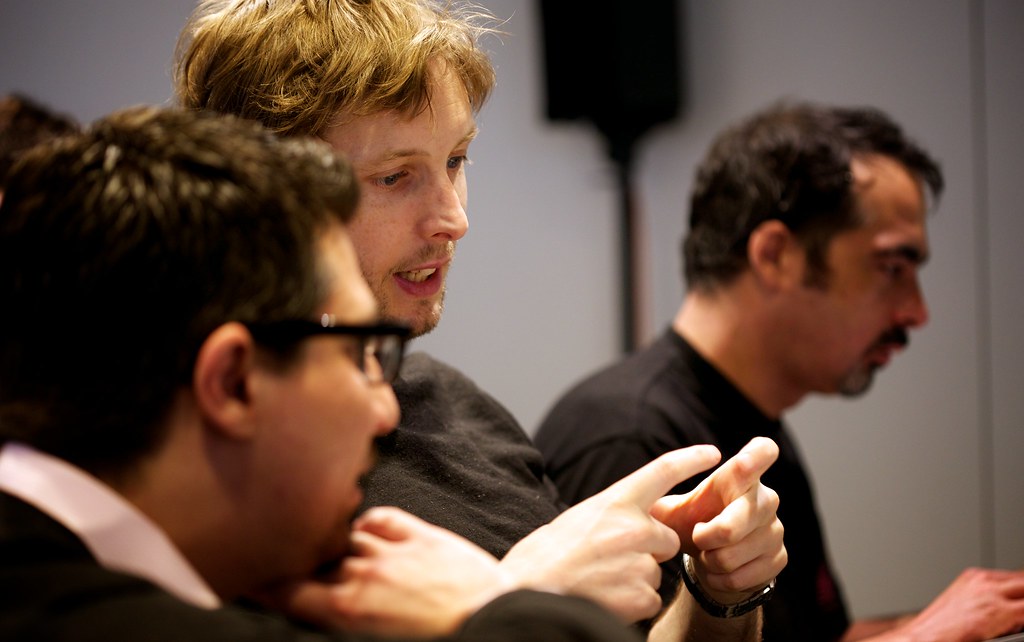Time Hacking for College Students
Picture this: Full-time student taking full course load, working part time, leading a growing club at his university, actively working on half a dozen software projects at any given time and still finding time to exercise every other day. All this, without getting burned out.
Seems like impossible, doesn’t it? That’s my life in under 50 words. I’m often asked by many about how I manage my time, and I find myself repeating the answer. So, what’s my secret? Here’s how to be a highly productive student by hacking your time:
Note: This won’t be a long post (trying not be ironic here), but I’ll try to get my message across. There is no particular order for the tips here, but I’ve tried to make the order slightly meaningful. If you find anything ambiguous or wrong, get in touch.
Set the alarm for an hour early - even on weekends
This is what I have recently started doing - I used to wake up at around 7am until a few months ago, but now I wake up at 6 in the morning. Yes, for college students, this is the “holy-shit-it’s-too-early” time, but for me, it’s the time when I am most productive. I have found that waking up early, washing up, and then working on personal projects gives me the most productive hour of the day.
The main point here however is to be consistent - sure if you pulled an all-nighter then you deserve to sleep, otherwise, keep your sleeping schedule consistent throughout the week (that includes weekends).
I highly recommend that you try this for yourself and find your perfect time.
Don’t feel guilty about lost time 
Seriously. Don’t. You were partying till 3am last Friday and had a bad hangover the next day. It’s done. Forget about it. Focus on today. That’s what matters now.
Set small goals, and stick to them
Until end of my freshman year, I just used to do whatever I wanted to. I did not really have a direction - I knew what I wanted, but didn’t know how. Then I set micro-goals for myself:
- I’ll write at least 1 Python script a day for a month
- I’ll talk to at least 1 new student every day in my lecture in the first two weeks
- I’ll run at least 1 mile every other day for three months
These small goals became my pathways. And trust me, these small goals have turned into huge life events. My coding skills have improved significantly, I’m able to learn new things really fast, I’m a much better listener and conversationist (still improving, though), and I recently ran a 5k.
The trick here is two-part:
- Set specific, achievable goals: don’t set goals that you know cannot achieve. Be realistic, you know what you are capable of.
- Stick to the goals: This becomes important once you are so close to your goal. “I have 27 days of commits. If I stop today, I’ll have to start from 0.”
I’ll say it again, being consistent with your goals rewards you greatly.
Exercising regularly to break out

I’d been thinking of finding time to exercise since freshman year but just kept on avoiding it. Sometimes I was so busy that I used to spend almost 12 hours each day sitting in labs and working on my homework. But now I forced myself to run every other day - no matter how, but I forced myself to take time out.
What I have found is that physical activity can greatly improve your productivity by giving you a break from the usual, and some research vouches for this. Go spend an hour at your gym at your school, and maybe, like me, you’ll run into an old friend you haven’t seen for months.
Automate everything
Step 1: Learn to code
Step 2: Automate repetitive tasks
Step 3: ???
Step 4: Profit
There are tasks you do regularly that take a lot of time. Stop wasting time there. Automate those things (or outsource them if you can). Read The 4-Hour Workweek.
Maintain a to-do list
I use Wunderlist - and love it. Whenever I get something to do, I instantly add it to my list. I also maintain categories for easy management and classification of my todos: eg, by course name, by priority etc. (Read next point)
If a task will take less than 2 minutes, do it now
The only exception to the previous rule is this - if I get something to do that will take me a minute or two, I complete it at the same moment. This keeps me from flooding my to-do list with micro-tasks, and doesn’t give me a false sense of being busy (which humans inherently love).
Prioritize (!)

One of the most crucial parts about having a to-do list is to know how to prioritize your tasks. Like most things in life, sadly there’s no one-size-fits-all for your tasks. Know what you have to do now, or today, or this week, and what happens if you miss the deadline. Learn to think in a pro-cons way and to weigh each side. Learn to take decisions for your life.
Maintain a calendar
Kind of similar to maintaining a to-do list - any event, meeting, appointment, class goes into my calendar. I set appropriate notifications and reminders and make sure to see the calendar every morning to prepare myself for the day.
Inbox zero

A few months ago, I started doing this - highly recommended. At any given point, I have a total of 0 emails in my inbox. Whenever I get any new mail, I process it by either replying, or delegating, or archiving, or deleting.
Don’t hang out with people who don’t respect your time

Ditch people who:
- Force you to “have fun” when you really don’t want to
- Don’t value or respect your work
- Are always sad or otherwise negative
Keep learning new skills
Now that you have a lot of free time, please don’t spend it all on playing video games or watching TV. Keep learning. Learn new things. Make sure you don’t get rusty.
Have fun
Life isn’t just about finding ways to be more productive, or optimization of daily tasks. It’s ok to take a break. Go for a walk once in a while. Go to a rave every couple months to vent out. Know when you are burned out and need to get away from everything and then actually do it. Your body and your mind will thank you.
Conclusion
The number one reason why I am able to do so much and still have some free time for myself is because I do what I love. It’s not something that some teacher or parent wants me to do.
Moreover, my friends are the best people on the planet - I talk to them about my studies, work and projects and often collect feedback. They talk about theirs’ as well. Most of us work almost all the time, and it’s fun.
To reiterate, the tactics above may not work for you, they are just references. You need to find what works for you, test, tweak and improve from there.